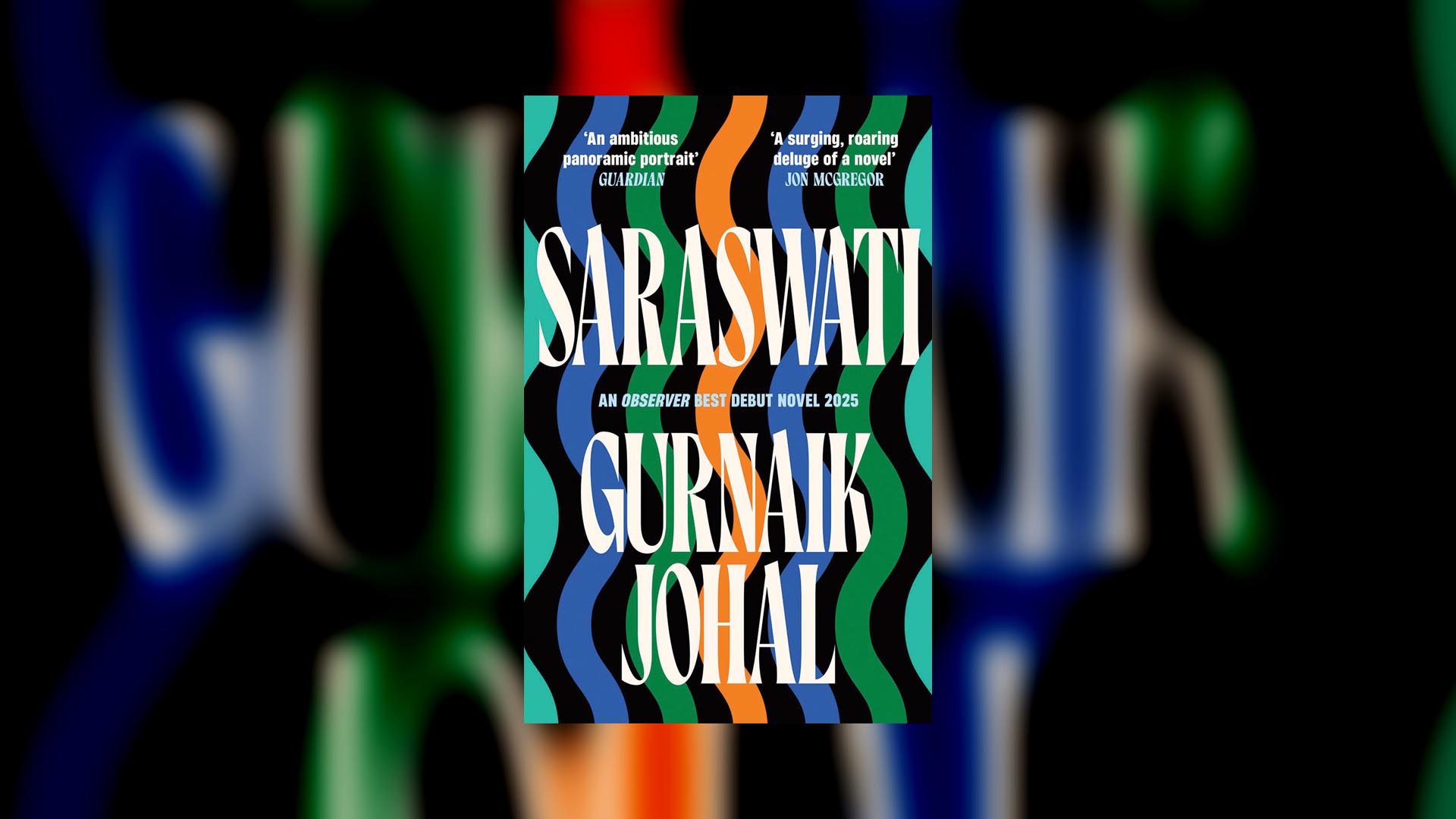Saraswati is Gurnaik Johal’s first novel, named for the river goddess, who, following myth, once rippled across Northern India. In this parallel modern world, signs of Saraswati’s return are reported when Satnam, visiting rural Punjab after his grandmother’s passing, discovers the dry well he has inherited is gushing with water.
After this sighting, the Hindu nationalist government decides that the River Saraswati will flow again; a glorious promise of nostalgic pride that engulfs any dissenters.
As Satnam becomes embroiled in a plot to resurrect the river, his connections to six far-flung relatives are unravelled. They are the descendants of Sejal and Jugaad – a couple who defied caste law and married in the late 19th century. The story flows between their disparate lives, moving between India, Diego Garcia, Nairobi, London, Tibet, Svalbard, Pakistan, Singapore and Canada.
Each narrative is threaded together by Qisse; storytelling from Punjabi folklore. I was most invested in Nathu’s storyline, an archaeologist in a loving relationship with his lesbian wife Akeyo, making marriage on their own terms.
Johal attends thoughtfully to the kyriarchy that structures realities across continents – unpacking environmental destruction, colonialism, fascism and more. However, though the violent costs of Saraswati’s course are apparent, there is little engagement with the brutal Islamophobia that is central to
Hindutva supremacy.
Undoubtedly, Johal has tremendous power as a writer, crafting some fiercely beautiful, often visionary chapters. While his scope is breathtaking, some depth is lost in attempting to bring so many narratives into confluence. Sometimes, this can swallow up the characters’ individual voices, rather than letting them shine through.










